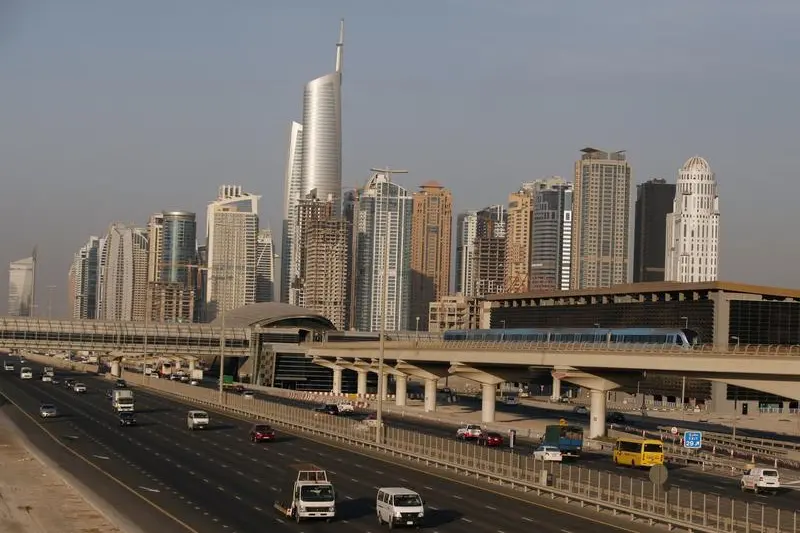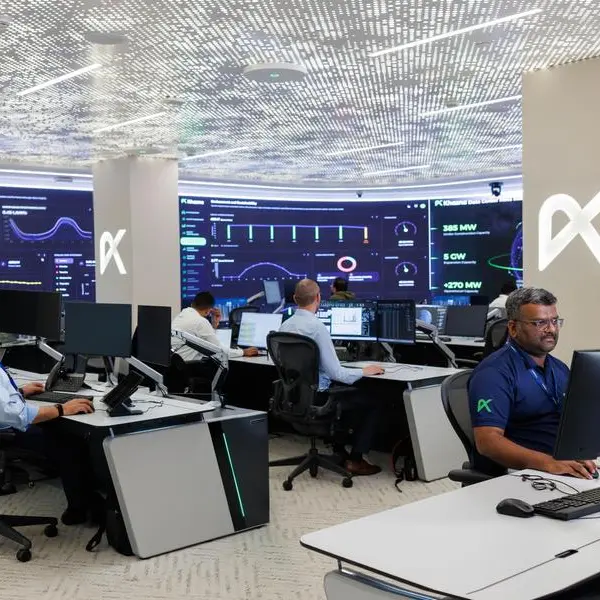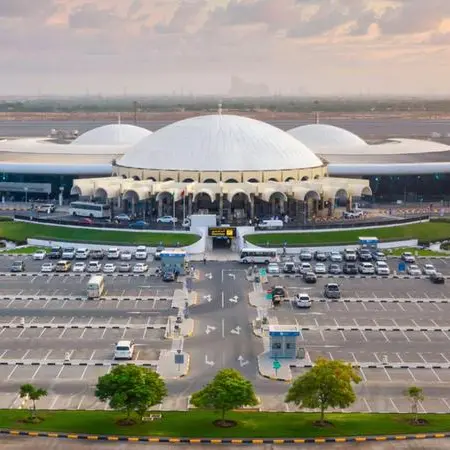PHOTO
DUBAI, 27th March, 2017 (WAM)--Vice President and Prime Minister of the UAE and Ruler of Dubai, His Highness Sheikh Mohammed bin Rashid Al Maktoum, has approved the award of two contracts for constructing the 7th Interchange on Sheikh Zayed Road, as well as Al Yalayis and Al Asayel Roads, at a cost of AED 1.2 billion.
The two projects will enhance the link between Sheikh Zayed Road and both Sheikh Mohammed bin Zayed Road and Emirates Road. It will also ease the traffic flow on Sheikh Zayed Road by diverting inbound traffic from Abu Dhabi on Sheikh Zayed Road to Al Yalayis Road and on to Sheikh Mohammed bin Zayed Road and Emirates Road. It will enhance business activity and the movement of goods from and to Jebel Ali Port. Commenting on the project, Director-General and Chairman of the Board of Executive Directors of the Roads and Transport Authority (RTA), Mattar Al Tayer said, "The project has been undertaken in implementation of the directives of His Highness Sheikh Mohammed bin Rashid Al Maktoum to immediately start construction works on the road and transport projects."Such projects are prompted by Dubais sustained development, and the need to meet the requirements of growth and urban development and bring happiness to people. These are also part of the road projects approved for easing mobility and accessibility to the site of Expo 2020. The Project will raise the capacity of Al Yalayis Road to almost 10,000 vehicles per hour per direction. It will also cut short the transit time between the 7th Interchange on Sheikh Zayed Road and the Sheikh Mohammed bin Zayed Road to as low as four minutes, he added. "The project to construct the 7th Interchange on Sheikh Zayed Road will cost about AED 393 million. It encompasses the construction of a four-lane bridge branching out of Al Yalayis Road into two bridges of two lanes each. The first one is bound for Abu Dhabi and the other one leads to Dubai Road and from there to Jebel Ali Free Zone and Port. It also includes improving the right-side turn to offer three lanes stretching out of Sheikh Zayed Road to Al Yalayis Road in the East, and two lanes from Al Yalayis Road to Sheikh Zayed Road in the direction of Dubai," Al Tayer explained. He added, it also includes the construction of two lanes in the direction of Sheikh Zayed Road and on to DUBAL Road, and two lanes from DUBAL to Sheikh Zayed Road in the direction of Abu Dhabi. The project also includes improving the light signals at Gate No. 1 and 2 of Jebel Ali Port, and the construction of another bridge of two lanes to serve the inbound traffic from DUBAL Street in Jebel Free Zone & Port crossing over Sheikh Zayed Road in the direction of Al Yalayis Road eastward. As part of the phases of the Parallel Roads Project, Al Yalayis Road is being constructed over six km extending from the 7th Interchange of Sheikh Zayed Road to Sheikh Mohammed bin Zayed Road at Al Houdh Interchange. The RTA will also construct Al Asayel Road, which will extend 5 km to link with JAFZA, Jumeirah Islands, and Emirates Hills. The total cost of the two roads is about AED 792 million. The project includes increasing the number of lanes on Al Yalayis Road from three lanes in each direction to six lanes in each direction with a total capacity of about 10,000 vehicles per hour. The project also includes the construction of side roads with capacities ranging from three to six lanes in each direction to link adjacent intersections and ensure the movement of traffic from and to Al Asayel Road and First Al Khail Road. Works in the project include the construction of two flyovers fitted with light signals. The Etihad Rail Project has been taken into consideration in the project planning. The first flyover is at the junction between Al Yalayis Road and First Al Khail Road, and the second is at the junction between Al Yalayis Road and Al Asayel Road. Another flyover will be constructed to serve the inbound traffic from Al Asayel Road in the South to Al Yalayis Road in the East along with the completion of the extension of Al Asayel Road over 5 km comprising three lanes in each direction to link JAFZA with Jumeirah Islands and Emirates Hills. The project will also be fitted with a two-lane flyover running about 2 km across Al Asayel Road to serve the inbound traffic from Qarn Al Sabkha Road in the direction of Sheikh Mohammed bin Zayed Road. It will be linked with free-moving flyovers that will serve as exits for traffic generated by the Al Furjan development. The project also includes the construction of six surface light signals on Al Asayel Road to provide entry and exit points for some of the existing development projects such as Discovery Gardens and Al Furjan. The RTA recently completed the final phase of the Al Houdh Interchange Project between Sheikh Mohammed bin Zayed Road and Al Yalayis Road at a cost of AED 228 million. The project included the transformation of the signalised Al Houdh roundabout into a free flyover that caters to the needs of the Etihad Rail route. The project also included the widening of the Sheikh Mohammed bin Zayed Road, in the area from Al Houdh intersection to the intersection with the road leading to Al Maktoum Airport, from three to six lanes in each direction over the 11 km-long sector. It also covers the construction of a service road running along Sheikh Mohammed bin Zayed Road for over 4 km from the intersection of Al Khail Road to Al Houdh roundabout to ease the entry and exit to and from neighbouring development projects. The RTA, in August 2015, completed the road project linking the Sheikh Mohammed bin Zayed Road at the intersection with Emirates Road across the Dubai Investment Park (DIP) in a sector extending 9 km comprising four lanes in each direction. It also includes entry and exit points for DIP and Jumeirah Golf Estates through signalised junctions, which can later be transformed into flyovers. The project includes the construction of a bridge on Emirates Road providing free traffic movement for inbound vehicles from JAFZA in the direction of Sharjah. The design of the projects caters to the needs of construction works of Etihad Road project in future. Al Yalayis Road is a key traffic hub parallel to the Jebel Ali-Lehbab Road and contributes immensely to diverting a sizable share of traffic movement and trucks from Sheikh Mohammed bin Zayed Road to Emirates Road. The Road is expected to be used by 55,000 vehicles per hour per day and will have a capacity of 6,000 vehicles per hour per direction.Copyright Emirates News Agency (WAM) 2017.





















